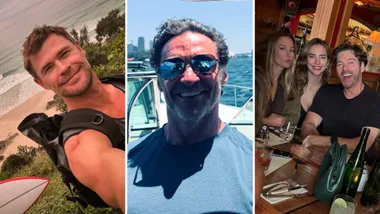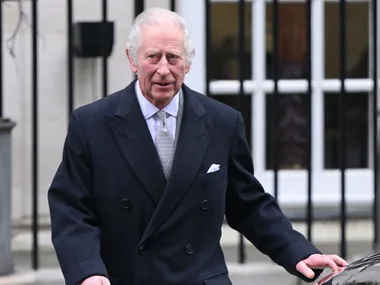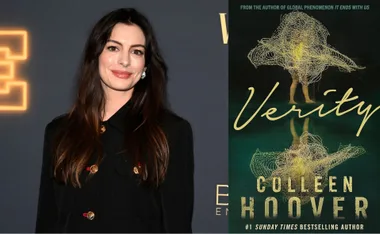Author Patti Miller has been teaching people how to write their memoirs since 1991. She has had thousands of students from all over Australia attend her courses and has worked with a number of published authors. From 1984 to 1992, Patti was a lecturer in Writing & Literature at the University of Technology and the University of Western Sydney. Since 1991 she founded the Life Stories Workshops and has offered fiction and life writing workshops at Writers’ Centres, Community Centres and for Continuing Education at the University of Sydney.
Patti’s new book, Whatever the Gods Do (Random House $21.95), is the story of an extraordinary journey, which centres on Patti’s friendship with Kit and Dina. After Dina dies unexpectedly, Patti spends seven years caring and being ‘the second mother’ of the couple’s son, Theo. Patti is devastated when Theo’s father decides to move away to begin a new life. Desperately missing Theo and in need of something to distract her from her misery, Patti decides to give singing lessons a go.
**Q: How do you know where to start your life story?
A:** Where you start will be determined to some extent by whether you are writing your whole life story, (autobiography) or an aspect of your life, (memoir). They will clearly begin in different places, but both can begin in any number of ways – with a memory, a fact, an anecdote, a symbolic image, or a philosophical comment. Whichever you chose, it will be more powerful if it says something significant about your life. I like best the idea of starting with an early memory, because early memories are nearly always significant. But you don’t have to start at the chronological beginning. For example, I began Whatever The Gods Do with a image of myself singing which is really the end of the story.
**Q: What qualities make a great memoir?
A:** For me, a great memoir illuminates what it is like for a particular person to be here set down in the mystery of the world. I am not very interested in achievements, or even all the events of someone’s life, what I am interested in is how they see and experience their world, whether it is the world of fame and public success or the world of their own family and back-yard. So a great memoir is one that observes the surroundings, experiences, events and relationships of a life with clarity and insight. It engages the mind and heart and sheds some light on what it is like to be human – whether that is as a movie star, politician, farmer or housewife.
**Q Give me three golden rules about writing your memoir?
A:** These three golden rules are from my text, Writing Your Life, a journey of discovery (Allen & Unwin 2001). This text has lots of information about how to write your life story :
Write with attentive awareness; whether you are writing from life or imagination, faithful observation will give truth and beauty of style.
Write because it matters to you; this will give truth and beauty of voice.
Write with a sense that you are making something; this will give truth and beauty of form.
**Q: When setting out to write your memoir, should you write for yourself or for an audience?
A:** It depends on whether you want to publish or not. If you want to publish, then certainly you need to be aware of the readers. But you must not write just to please your readers, because all readers are different and you would lose your own sense of what you wanted to say. Hold on to your own voice, your own perception of your life, but remember that you are not pouring out your heart into a journal, you are constructing your life on the page for other people to experience. A useful tip is to write with a particular reader in mind, a friend or relative with whom you feel most natural, most yourself.
**Q: When writing about living people, what are the rules? Do you need to ask permission?
A:** Thee are some legal rules, ie you cannot defame anyone, and if you think some of the things you have written might be defamatory than consult an arts law lawyer, (see Arts Law Centre of Australia). Apart from legal concerns, the rules are up to your own sense of justice and responsibility. You don’t need other people’s permission, but if someone you care about might be hurt or embarrassed and you want an ongoing relationship with them, then it would be wise to consult them. For example, in writing
Whatever The Gods Do
I discussed the story with the two central characters, Kit and Theo, many times – and I changed their names to protect their privacy. However, I did not change any of the important facts or my perceptions – you must not let everyone else in your life be your editors or you would soon have a ‘blancmange’ version of your life, sweet and bland.
**Q: Can you write a memoir without being truly honest about your darkest secrets? (For example, should Cheryl Kernot have included her affair with Gareth Evans in her book?)
A:** This is a tricky question because what you reveal depends on your purpose in writing your life story. If you are writing about your achievements, then there is no need to include your love affairs – failed or otherwise. On the other hand, leaving out dark secrets can create an unreal fairy floss version of life which is ultimately undermining to the reader.
The three key questions about dark secrets are:
Is it important/useful that other people know these secrets?
If it is important, then, is it worth the pain it may cause to innocent others?
And if it is worth the pain, am I strong enough to cope with the flak?
I imagine Cheryl Kernot said ‘No’ to the second question – it’s everyone’s right to make that decision from their own emotional and moral standpoint. In Whatever The Gods Do I had to decide whether to leave in a scene where Kit told me he wanted to commit suicide, knowing that Theo, his young son, would be distressed when he read that in the book. Rightly or wrongly, I decided the truth outweighed the pain that revealing this dark secret might cause.
**Q: As a writing teacher specialising in memoirs, were you nervous about writing your own memoir?
A:** When I wrote my first memoir The Last One Who Remembers (Allen & Unwin ‘97)I felt nervous that readers would make comparisons between what I said about how to write memoirs and what I actually did! That book was an exploration of the importance of stories on our lives – with my own stories as a kind of illustration. I think the nervousness made me try a little too hard.
However, as I wrote Whatever The Gods Do, which is about Dina, a friend of mine who died leaving a three year old son, Theo, I immersed myself in the importance of the story and did not worry about what anyone would think. What was important was being honest and clear about my relationship to someone else’s child. It is a very complex story and it took as much heart and soul and mind as I could muster to write it – naturally now I hope readers will enjoy it.











